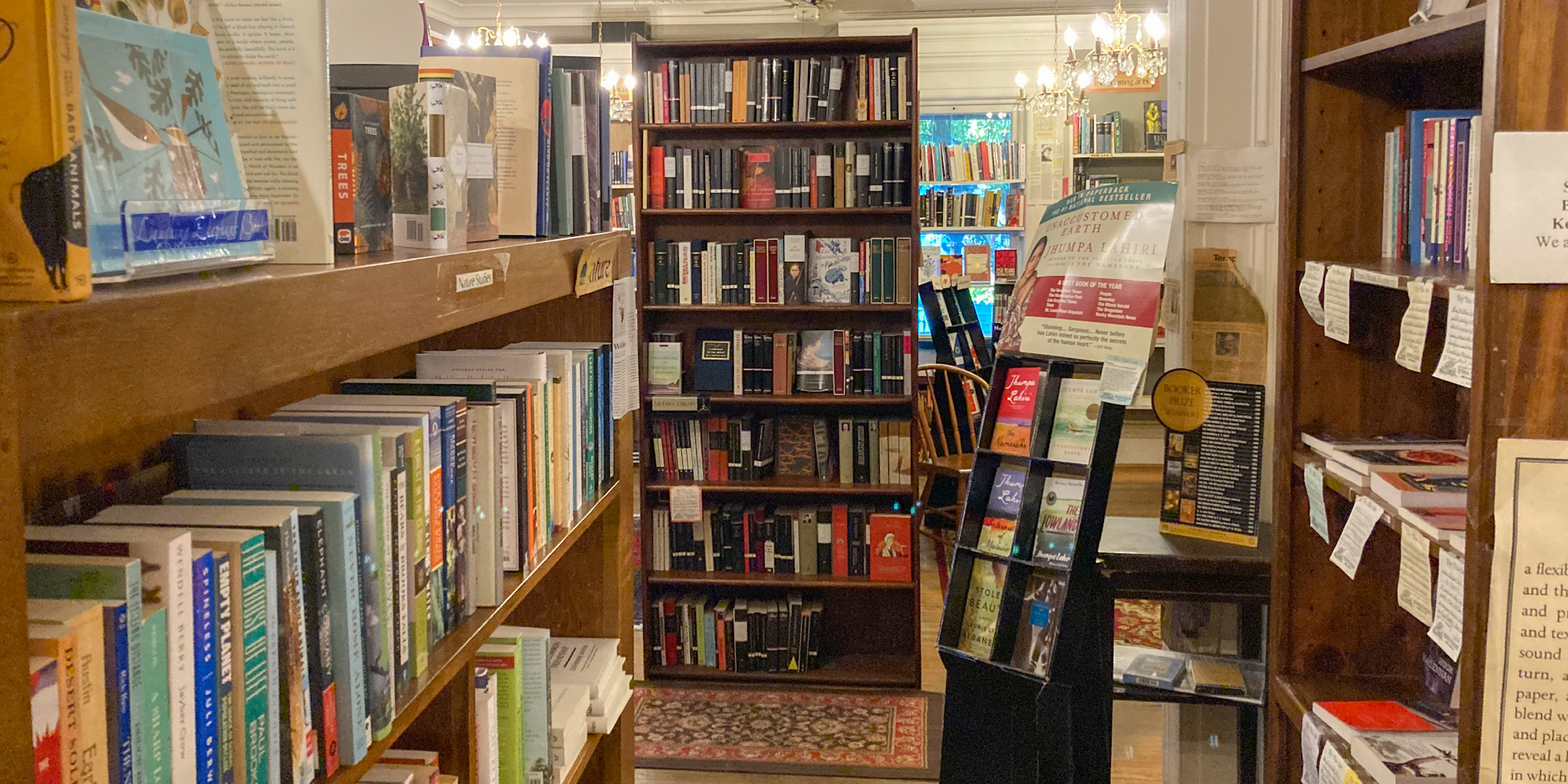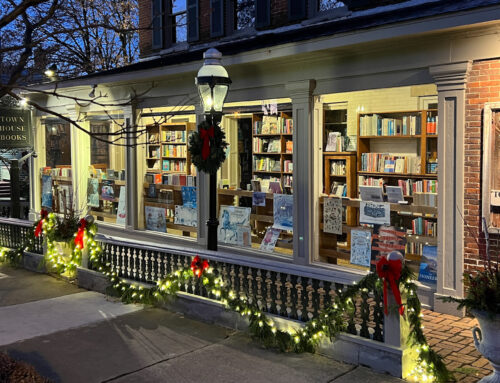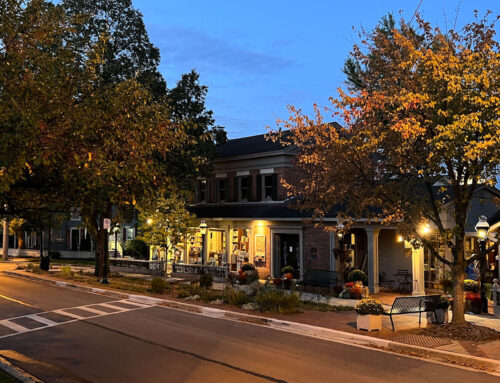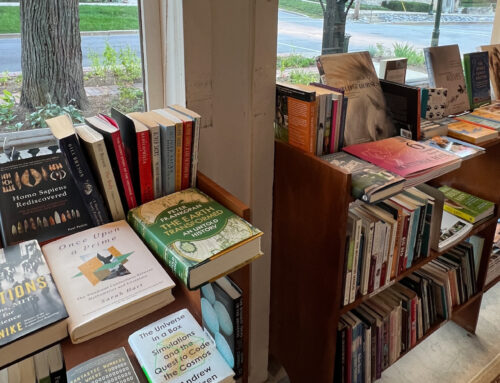Eve of Autumn
In that house they grew old together
And by accepting their fate and
Bearing it with a steady thoughtfulness,
They made light of it.
–from Ovid’s Metamorphoses, the tale of Baucis & Philemon
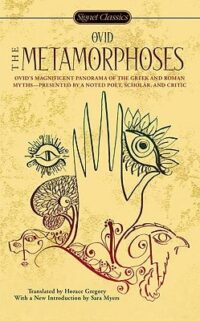 One of my favorite customers at the store once asked me, “Are you a Latinist?” It always makes me smile to think of that. I’m not, though there is something about this time of year that does make me want to be. The coming of autumn reminds me of college days and being thoroughly immersed in scholarly matters. Maybe it’s to do with the school year beginning—the inevitable rotation of the earth, or that early morning in late summer when you step out and feel the almost imperceptible shift into fall.
One of my favorite customers at the store once asked me, “Are you a Latinist?” It always makes me smile to think of that. I’m not, though there is something about this time of year that does make me want to be. The coming of autumn reminds me of college days and being thoroughly immersed in scholarly matters. Maybe it’s to do with the school year beginning—the inevitable rotation of the earth, or that early morning in late summer when you step out and feel the almost imperceptible shift into fall.
While traditionally we experience this as a time of harvest and bounty, there is also that undercurrent, that “sense of an ending.” The leaves turn dusty, our hummingbirds and orioles leave for the season and the days shorten. It is a beautiful time of year, but there is certainly a distinctive air of rumination, of time’s passage and of longing.
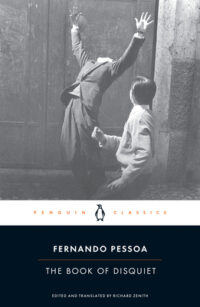 The Portuguese have the wonderful word, saudade, meaning a yearning for the unobtainable, the pining for a home or person that may never have existed or a deep sense of incompleteness tinged with melancholy. This isn’t nostalgia but a kind of exquisiteness of both desire and fulfillment: “Home, that beautiful place I’ve never been” and “Home, that beautiful place I’ve always been.” From what I’ve read there’s no English equivalent to that word, saudade.
The Portuguese have the wonderful word, saudade, meaning a yearning for the unobtainable, the pining for a home or person that may never have existed or a deep sense of incompleteness tinged with melancholy. This isn’t nostalgia but a kind of exquisiteness of both desire and fulfillment: “Home, that beautiful place I’ve never been” and “Home, that beautiful place I’ve always been.” From what I’ve read there’s no English equivalent to that word, saudade.
“I read and abandon myself, not to my reading but to me. I read and fall asleep… my already dreaming eyes.”
-Fernando Pessoa
Many books like The Lacuna, The Pull of the Stars, and The Pages remind us that we have been here before. Pandemics, fascism and political unrest are nothing new. Others in the past have been through such hardships. There is also laughter, friendship, heroic kindness, and multitudes of delight. Reading and rereading an esteemed book fortifies the perspective that life is indeed comprised of many cycles. Our task, our pleasure, is to ride them, as in the medieval notion of Fortuna’s great wheel.
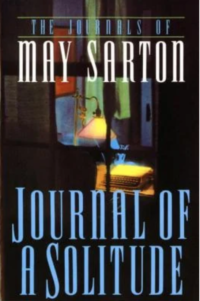 “Is this a key? Keep busy with survival. Imitate the trees. Learn to lose in order to recover, and remember that nothing stays the same for long.”
“Is this a key? Keep busy with survival. Imitate the trees. Learn to lose in order to recover, and remember that nothing stays the same for long.”
-May Sarton
With some writers, everything they wrote offers a restorative elixir to the reader. I’m thinking of Wallace Stegner and especially his little short story, The Berry Patch. It’s just one of those stories I need to hear every so often so that I may, in Cynthia Rylant’s words, “remember who I am and what I find beautiful.” A few others on this ritual reading shelf are William Maxwell, Alice McDermott, John Berger, Anne Michaels, Lao-tzu, and Jacqueline Woodson.
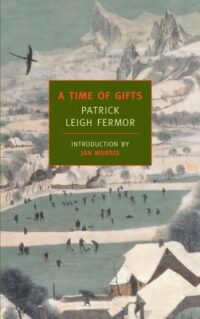 Some nonfiction writers ease our times of transition as well. Patrick Leah Fermor’s travel writing trilogy that begins with A Time of Gifts combines adventure with gorgeous writing and a contemplative sense of place. Speaking of a sense of place, I always feel reconnected to the earth as home through Aldo Leopold’s classic A Sand County Almanac set in southern Wisconsin.
Some nonfiction writers ease our times of transition as well. Patrick Leah Fermor’s travel writing trilogy that begins with A Time of Gifts combines adventure with gorgeous writing and a contemplative sense of place. Speaking of a sense of place, I always feel reconnected to the earth as home through Aldo Leopold’s classic A Sand County Almanac set in southern Wisconsin.
And, of course, May Sarton’s nonfiction, as well as her fiction and poetry all rekindle the fires. In my early twenties, on the recommendation of one of the most important people in my life, I first read May Sarton and devoured everything of hers I could get my hands on, starting with her journals. Now, years later, as I reread her work, I am able to enjoy a completely different but still rewarding experience. Books don’t change, but we do. They are there to meet us at each new place on the “great wheel.”
Happy Reading!

